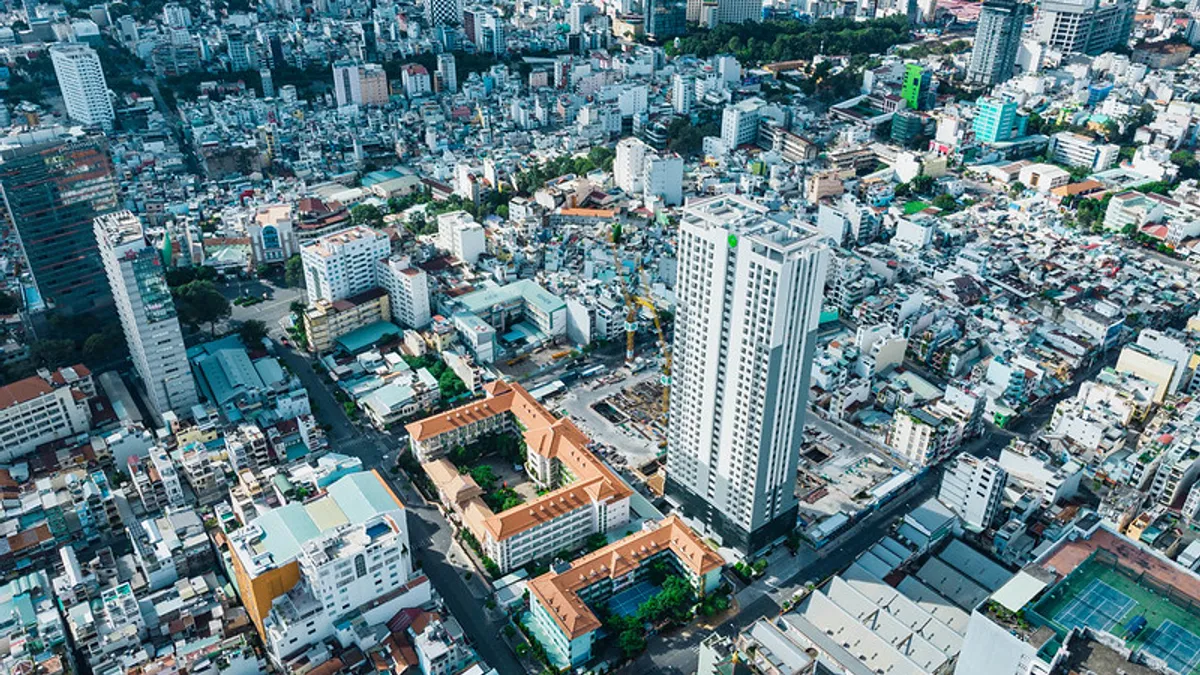Dive Brief:
- Brands and retailers are shifting their purchase orders, locations and financial outlooks after outbreaks of COVID-19 led to extended lockdowns in Vietnam.
- Companies including Abercrombie & Fitch Co., Big Lots, Chico's, Culp, Designer Brands and Lands' End expected a financial hit, according to earnings calls and SEC filings. While some retailers were able to find alternate suppliers, many said delayed product deliveries would result in lost sales.
- Stay-at-home orders are in place across Vietnam, including in manufacturing-heavy areas. While authorities began lifting restrictions in some areas last week, Reuters reports lockdowns in Ho Chi Minh City were extended until the end of the month.
Dive Insight:
Procurement teams are starting to develop a playbook for when lockdowns limit supplier production.
Abercrombie & Fitch Co. CFO Scott Lipesky said on an Aug. 26 earnings call new pandemic restrictions in multiple countries were leading to average delays of one to three weeks for fabrics, but the company is adapting by pulling forward deliveries and using airfreight, among other tactics.
"We have and will continue to leverage our strong vendor partnerships in a similar playbook already used in other countries to ensure we get product as quickly as possible upon reopening," Lipesky said.
Still, many executives emphasized that weekslong losses in production from delayed deliveries can translate into out-of-stocks at retail shops, and, in turn, into lost sales.
Jonathan Ramsden, CFO of Big Lots, said factory closures in Vietnam cost the company $60 million in lost sales "due to receipts [we are] not expecting to get in time for the normal selling season."
The issues in Vietnam are compounding previous problems in the import supply chain.
Designer Brands CFO Jared Poff said its Camuto footwear segment had already seen $7 million in orders be delayed into Q3 due to "increased demand with limited factory capacity during peak season, rolling blackouts, COVID issues, and labor shortages."
"We anticipate more shifts will occur from Q3 to Q4 based on COVID closures we are seeing Vietnam," Poff said.
All of the comments made by these companies were made before Vietnam announced it would extend lockdowns in Ho Chi Minh City until the end of September.
Nonetheless, the range of reactions and strategies shows how various companies in similar situations may use different tactics to manage their supply chain in response to pandemic-related lockdowns.
Some companies were able to shift production outside of Vietnam to avoid product delivery delays.
- "We've been successful moving 9% of our overall production out of Vietnam into other countries," Molly Langenstein, CEO of Chico's, said on an Aug. 31 earnings call.
- Golf-club maker Callaway "has been able to mitigate a significant portion of the third quarter Vietnam supply chain disruption by shifting some production capacity to non-Vietnam suppliers," the company said in an SEC filing.
- Mattress company Culp cited its "flexible Asian platform and the upcoming addition of our new Haiti platform, as well as our long-term supplier relationships and our product-driven strategy" as tactics it would use to navigate supply challenges in its upholstery fabric business segment.
Sheng Lu, an associate professor at the University of Delaware's department of fashion and apparel studies, said there were three factors that may affect the strategies companies choose for mitigating lockdowns:
- The degree by which a company's sourcing base is diversified. A strong dependence on a single company means a higher risk if a company locks down.
- The number of product categories and SKUs carried by a brand. The more complex a supply chain, the more difficult it is to make widespread changes.
- The price at which a company sells their products. If a company sells products at a higher price, they can absorb higher sourcing costs, and therefore have more options to choose from.
Lu pointed to the footwear and apparel industries as an example. Footwear companies like Designer Brands are more reliant on Vietnam than fashion companies like Abercrombie & Fitch, and higher-priced companies like Chico's may have more sourcing flexibility in their product margins.
For Lu, the series of case studies provide a lesson for how to manage a supply chain if COVID-19 outbreaks and lockdowns were to remain in the picture in the long-run.
"It's not just about reduced Asia exposure but really how to improve flexibility in the supply chain," Lu said."

















